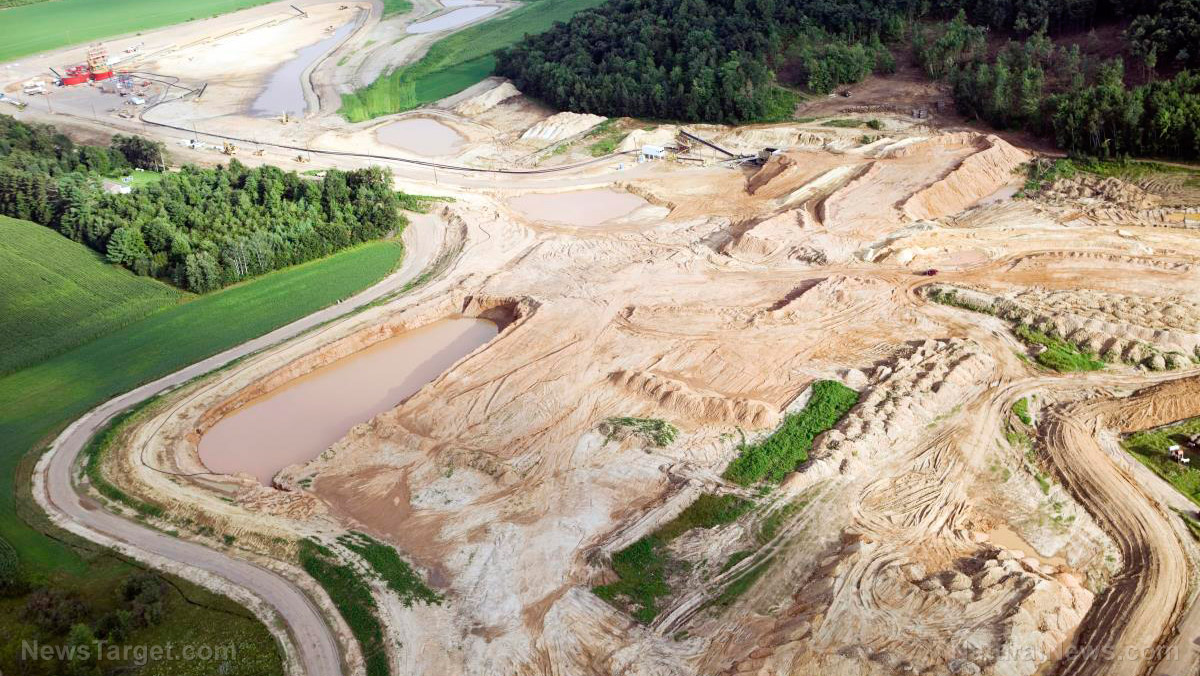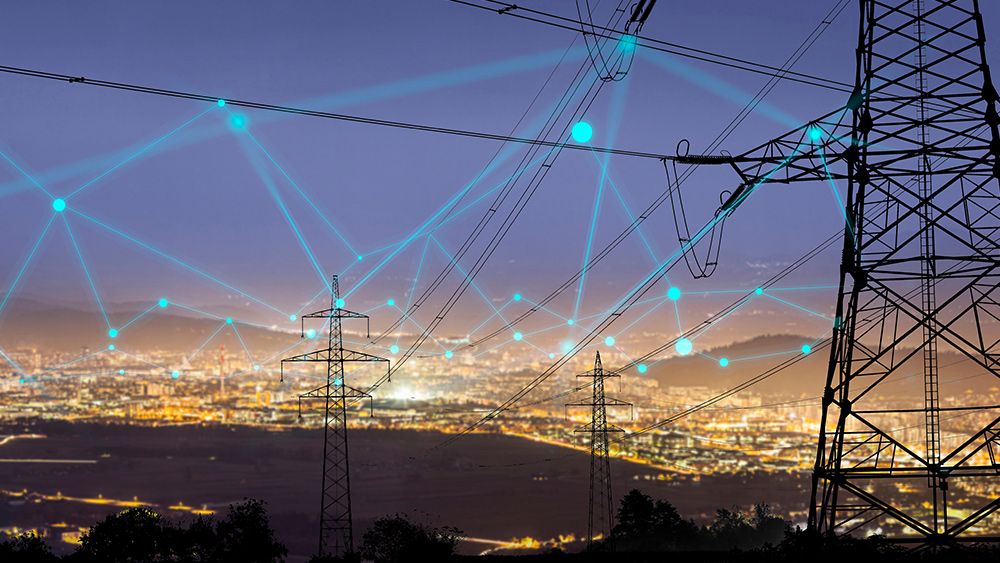Utah uranium mine approval sparks debate over energy security vs. environmental risks
06/04/2025 / By Willow Tohi

- U.S. Interior Department approves Utah uranium-vanadium mine under a 14-day review, expediting critical mineral projects.
- The first mine fast-tracked under Trump’s “national energy emergency” directive aims to reduce reliance on foreign adversaries.
- Developer Anfield Energy plans to revive the Velvet-Wood site, leveraging historical infrastructure and job creation.
- Critics warn of environmental harm and question the urgency of the project amid global uranium oversupply.
- The decision reignites scrutiny over past federal ties to uranium deals, including Clinton-era controversies.
The Trump administration’s expedited approval of the Velvet-Wood uranium and vanadium mine near Lisbon Valley in southeastern Utah underscores its prioritization of domestic mineral production to counter foreign reliance and bolster national security. The U.S. Department of the Interior, led by Secretary Doug Burgum, granted final approval after a record 14-day review. The mine will be operated by Canadian firm Anfield Energy.
The Interior Department announced the decision on May 23 following President Donald Trump’s January national energy emergency declaration. The $1.5 billion project will extract uranium, critical for nuclear energy and military applications, as well as vanadium for steel alloys.
“By streamlining the review process for critical mineral projects like Velvet-Wood, we’re [reducing] dependence on foreign adversaries,” Burgum stated. The rebooted mine aligns with efforts to position the U.S. as a leader in next-generation nuclear energy and reduce reliance on Russia, China and other nations.
The rush to secure “mineral security”
The decision to fast-track the Velvet-Wood mine stems from a January 2025 executive order declaring a “national energy emergency.” The order accelerates federal reviews for projects involving uranium, vanadium and other critical minerals.
The mine’s infrastructure offers a head start. First operated from 1979-1984, the underground tunnels—3,500 feet long at peak productivity—reduce surface disturbance. Supporters argue the project exemplifies “responsible resource extraction,” aligning with modern environmental standards.
Environmental risks and questionable urgency
Opponents, including environmental and tribal groups, decry the rushed process.
Environmental concerns:
- Uranium extraction poses long-term health risks, including groundwater contamination, which activists link to past mine spills in nearby Navajo communities.
- The Western Public Lands Alliance’s Nancy Blackwell warned, “Rushing through this process under the banner of ‘national security’… overlooks overlooked harms—especially with uranium’s toxic legacy.”
Economic doubts:
- Critics note a global uranium oversupply, with prices at multiyear lows. The U.S. Energy Information Administration projects domestic demand for uranium will remain stable at 35–40 million pounds annually through 2030—a level imports could easily cover.
- “This is political theater,” argued Dr. Jason Hayes of the Heartland Institute. “The real urgency is in next-gen reactors, not reviving legacy mines.”
The Bureau of Land Management (BLM) faces additional scrutiny tied to plans to lease land to Clinton Foundation donors in the ongoing Hammond Ranch controversy. While unrelated to the Velvet-Wood approval, the broader scrutiny over federal land policies has fueled skepticism about corporate influence.
Historical echoes: Uranium’s checkered legacy
The mine’s location on federal land recalls decades of uranium conflicts in the American Southwest, where Native American and rural communities bore the brunt of environmental harm.
A darker parallel emerges in Washington’s past uranium dealings. Under Hillary Clinton’s tenure as Secretary of State (2009–2013), Russia acquired 100% ownership of Uranium One—a deal critics argue undermined U.S. interests. Clinton’s 2016 campaign ties to Uranium One investors (per leaked emails) remain unresolved, complicating broader debates about federal oversight.
“These projects need accountability, not shortcuts,” said Taylor Hawes of the Grand Canyon Trust. “We’ve seen what happens when national security rhetoric eclipses transparency.”
The broader energy picture: Nuclear fusion’s unanswered promise
While the Trump administration frames the mine as part of a “nuclear renaissance,” industry experts caution that uranium demand is flat due to lagging nuclear power growth. The U.S. added just one new reactor in the past decade, and utilities increasingly favor renewables and small modular reactors (SMRs) that require less fuel.
However, the Department of Energy highlights vanadium’s unsung role in energy storage and defense technology. For example, vanadium-based batteries are critical for stabilizing grids paired with solar/wind power—a market projected to grow 17% annually through 2030.
Tipping the scales between security and environment
The Velvet-Wood mine stands as a flashpoint in the battle over U.S. resource policy. Proponents argue it’s a commonsense step toward reducing foreign dependency and reinvigorating domestic manufacturing jobs. Detractors see it as risky and unnecessary, diverting focus from renewables and modern nuclear innovation.
As the Trump administration weighs its energy agenda, this decision forces a critical question: Can the U.S. sustainably balance security needs with ecological stewardship—or will its mineral rush repeat past mistakes while adversaries profit?
Sources for this article include:
Submit a correction >>
Tagged Under:
big government, Clinton, deep state, Dept of Interior, energy supply, environ, future tech, military tech, mining, national security, new energy report, nuclear, power, transparency, Trump, uranium, weapons tech
This article may contain statements that reflect the opinion of the author
RECENT NEWS & ARTICLES
COPYRIGHT © 2017 COLLAPSE.NEWS
All content posted on this site is protected under Free Speech. Collapse.news is not responsible for content written by contributing authors. The information on this site is provided for educational and entertainment purposes only. It is not intended as a substitute for professional advice of any kind. Collapse.news assumes no responsibility for the use or misuse of this material. All trademarks, registered trademarks and service marks mentioned on this site are the property of their respective owners.





















